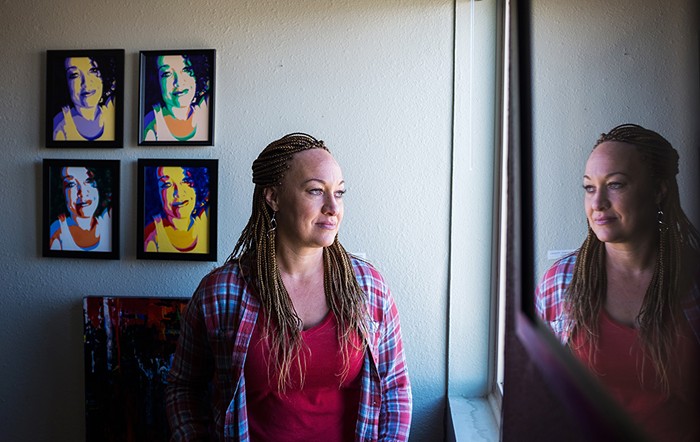As a white supremacist society, the United States privileges Dolezal’s challenging ethnoracial boundaries.Posted in Excerpts/Quotes on 2017-05-28 21:14Z by Steven |
As a white supremacist society, the United States privileges [Rachel] Dolezal’s challenging ethnoracial boundaries. This is so unlike the thousands of blacks who quietly dissolved into the white population a century ago. A media stir would have cost them their lives. Even Anatole Broyard, the New York Times film critic who passed away in 1990 took his hidden blackness to the grave to be taken seriously in his career as a writer. At the same time, unlike the acceptance that many Afro-Brazilians have for their negra frustradas, many Afro-Americans find her problematic at best. Their relatives and ancestors who passed as white (or do so now) do not receive the same rewards. Instead, it has to be quiet without any fuss, for fear of upsetting the status quo.
Chinyere Osuji, Ph.D., “Rachel Dolezal: ‘Negra Frustrada’ (Frustrated Black Woman),” Rutgers, The State University of New Jersey, May 24, 2017. http://chinyereosuji.camden.rutgers.edu/2017/05/24/rachel-dolezal-negra-frustrada-frustrated-black-woman/.





